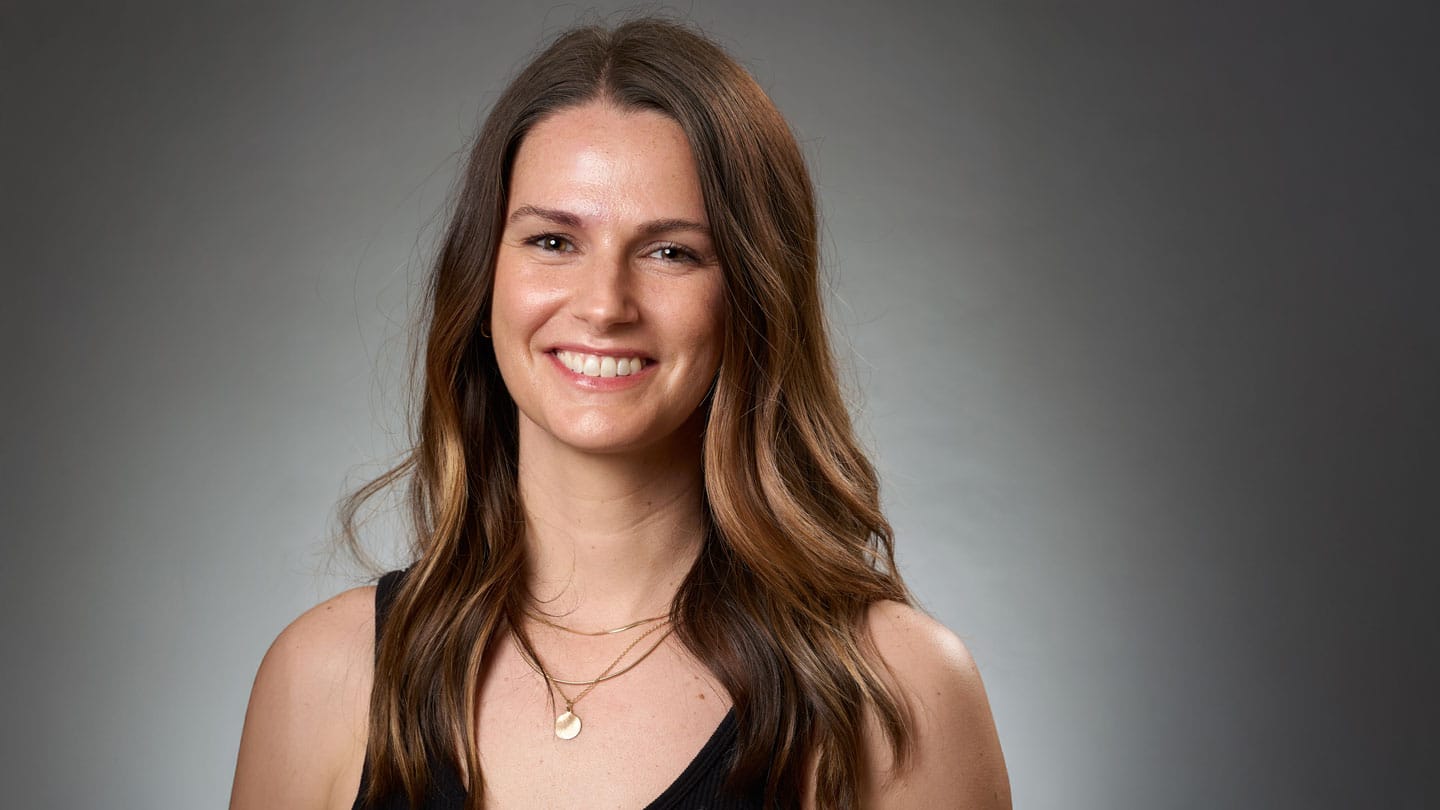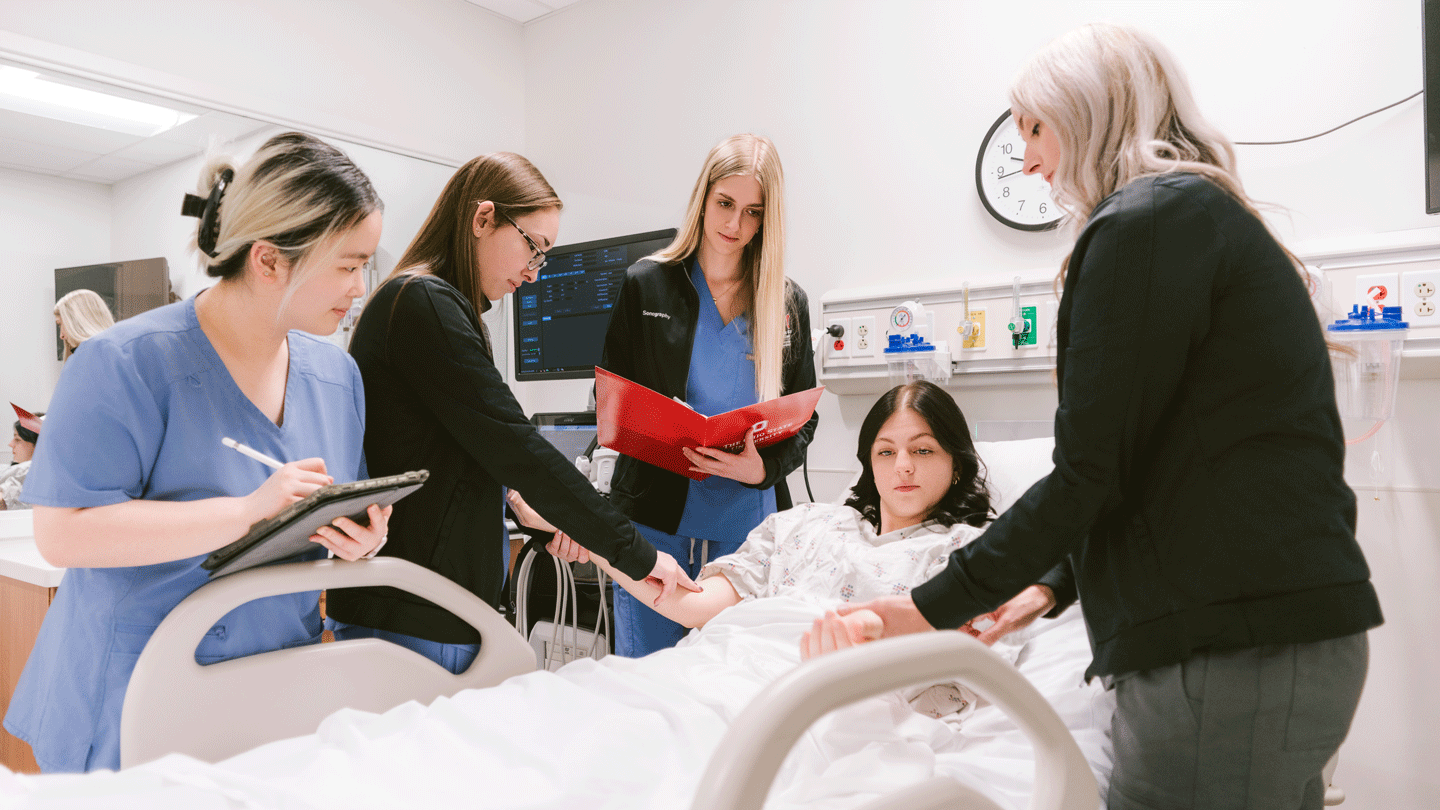What Can You Do with a Bioethics Master’s Degree?
Learn about student experiences and career outcomes from alumni of the online Master of Arts in Bioethics at Ohio State.

The Master of Arts in Bioethics at Ohio State is an interdisciplinary and fully online master’s degree designed for healthcare professionals, researchers, legal professionals, social scientists, or anyone with an interest in engaging with questions in bioethics, whether they be biomedical, social, technological, ecological, religious, or philosophical. Students who pursue a bioethics degree will find a wide range of areas of inquiry and applications.
In what fields do graduates of the online bioethics master’s program work? Because bioethics is interdisciplinary and multidisciplinary, our graduates go on to work in a variety of professions and fields, including:
- Medicine
- Veterinary medicine
- Social work
- Health law
- Policymaking
- Public health
- Biomedical research
- Chaplaincy
- Dentistry
What can you do with an online bioethics master’s degree?
Because bioethics is an interdisciplinary and multidisciplinary field, you can use a bioethics degree in many career paths. While some choose to pursue a primary career in ethics most of our students pursue an education in bioethics to enhance another professional field. Individuals who choose bioethics as a primary career often work as clinical ethicists within a healthcare institution or system. Others use their bioethics degree to complement their primary career-for example, in law or health care-by providing specialized expertise and skills. Many of our graduates also use their bioethics degree to gain leadership positions within their organizations, including serving as chairs of ethics committees or directors of mission and ethics. As you can see, the career outcomes for the program are as diverse and varied as the program itself.
Discover a few job titles held by graduates of the online Master of Arts in Bioethics:
- Neonatologist
- Clinical Research Ethicist
- Assistant Professor and Palliative Care Physician
We spoke with a few of our graduates to learn more about their educational journeys and how the online bioethics master’s degree has helped them grow their unique careers. Explore their stories below, or reach out to us directly, to learn what you can do with a bioethics master’s degree from Ohio State.
Neonatologist
A neonatology fellowship at Nationwide Children’s Hospital inspired Dr. Hevil Shah to explore the bioethics master’s program at Ohio State. With improvements in technology pushing the limits of viability for future generations, Dr. Shah started thinking about the ethical implications of such medical decisions and what they would ultimately mean for families.
“When I started wanting that background knowledge, that’s what got me interested in the program – because this is the future,” Dr. Shah said. “Every NICU and neonatal practice is going toward offering the possibility of life and hope to children where even a few years ago that wasn’t possible. And there’s a lot of outcomes where we’re going to have to figure out what this all means from a biomedical ethics standpoint.”
Dr. Shah valued the opportunity his courses provided to have conversations with peers located around the country from a variety of backgrounds and professions and hear their experiences firsthand – while sharing his own.
“In my classes, I might be talking to someone who has never been inside a NICU, who has no idea what it means to have a child with cerebral palsy or developmental difficulties. It can really change your perspective to hear about those things from a person who has seen or experienced them rather than just read about them,” Dr. Shah said.
Now a neonatologist in Fort Worth, Texas, Dr. Shah credits Ohio State’s bioethics master’s program with opening his mind and providing the tools to have difficult conversations.
“The Master of Bioethics program made me a better physician. When you hear about that ’22-week miracle baby,’ you don’t consider what ethical questions were running through the minds of the doctors, the nursing staff or the families. There’s so much we don’t see when we’re hearing that story on social media,” Dr. Shah said. “Now that I have the training, I can have those difficult conversations with my staff and the families when the outcome is different and try to provide closure.”
“The Master of Bioethics program made me a better physician…Now that I have the training, I can have those difficult conversations with my staff and the families and try to provide closure.”
-Dr. Hevil Shah
Clinical Research Ethicist
Alumna Alana Monzon is a clinical research ethicist, specializing in human subject protections for the National Institute of Health’s Division of AIDS research. Each day, she reviews informed consent documents, ensures adherence to federal and international regulations, and translates the ethical basis of those regulations to researchers. Monzon enrolled in the Master of Arts in Bioethics program hoping to advance her career in health research, and along the way, discovered a passion for health research equity.
“The online bioethics master’s program provided knowledge in the background of my profession and an understanding of why my job exists in the first place – as a measure to protect participants in research from harm, coercion, and unethical treatment,” Monzon said. “From climate change to humanitarian crises to social injustice, bioethics serves a vital role as we think about how life can flourish. Studying in this program will give you new ways of thinking about old problems and help you to always approach new challenges with a critical and open mind.”
“From climate change to humanitarian crises to social injustice, bioethics serves a vital role as we think about how life can flourish. Studying in this program will give you new ways of thinking about old problems and help you to always approach new challenges with a critical and open mind.”
-Alana Monzon
Assistant Professor and Palliative Care Physician
Bioethics graduate-turned-professor Dr. Nicole Shirilla first became interested in bioethics through her work as palliative care physician. Caring for extremely ill patients, often toward the end of their lives, brought up many ethical considerations, and she wanted training to ensure she was serving both her patients and her colleagues well. Ohio State’s online bioethics master’s program was the perfect fit. With the help of her advisors, Dr. Shirilla was able to map out a plan of study that allowed her to graduate in two years, while working full time.
A fellowship in clinical ethics helped Dr. Shirilla obtain the hands-on experience she was looking for, but the bioethics master’s program provided the formal education she needed to achieve her goal of becoming an educator.
“As someone who wants to teach and lead others, completing this degree was really important to me,” she said. “Since completing the degree, I have been given more opportunities to teach at the medical school. I am now starting to have a teaching role within the master’s program, as well, co-teaching classes that I took when I was a student: Clinical Ethics and End-of-Life Ethics.”
With the continuation of the COVID-19 pandemic, Dr. Shirilla’s work as a clinical ethicist and medical educator has become even more challenging – and rewarding.
“As graduates of this program, we’ve been trained to engage in biomedical ethics conversations, recognizing that it’s almost certain that people in a diverse, pluralistic society will have differing perspectives,” Dr. Shirilla said.
“Being able to dialogue in a respectful and professional way is incredibly important – all while striving toward the best ethic possible in any given situation. That’s the tension and the excitement and the value of the role of clinical ethics. Undoubtedly, it can be incredibly challenging at times. But if we don’t do it, who would? And what would be the consequence if people weren’t willing to engage on matters that can be challenging?”
“The work can be incredibly challenging at times. But if we don’t do it, who would? And what would be the consequence if people weren’t willing to engage on matters that can be challenging?”
-Dr. Nicole Shirilla
Ohio State’s online Master of Arts in Bioethics is applicable to a wide range of professions, allowing students the opportunity to explore and discover answers to the ethical questions they’re most passionate about.
Want to learn more about this interdisciplinary online master’s degree? Contact us or visit our website for more information, and we can help you on your journey.
Recent Blog Posts
Recent Blog Posts

Making the most of your credits: A guide for transfer students entering Ohio State’s online RDH to BS, Dental Hygiene Completion Program

From sonographer to operational lead: How Liz advanced her career with a bachelor’s degree in radiologic sciences

Four career outcomes with a bachelor’s degree in radiologic sciences
Get Started

